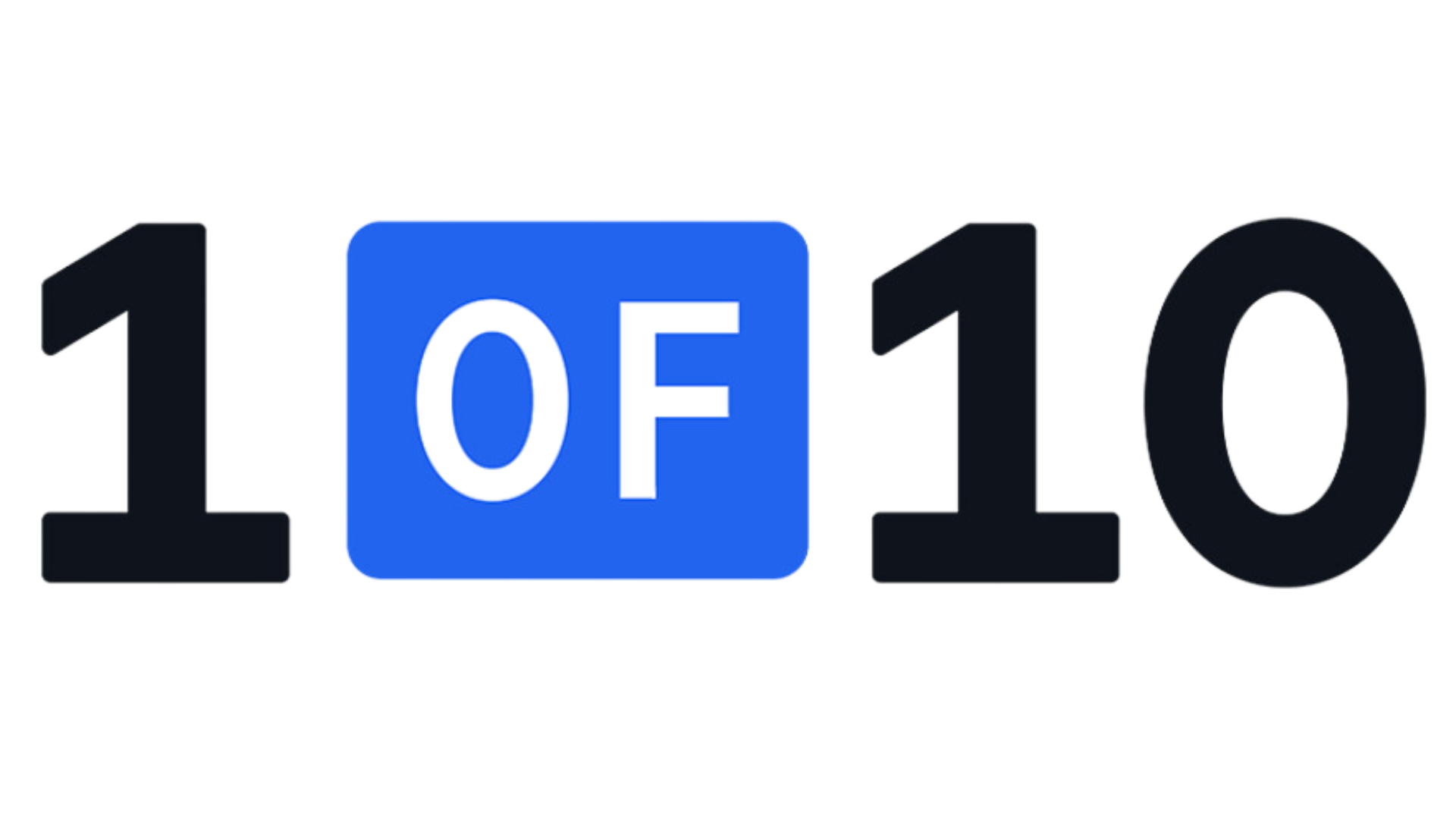Breaking Down The "$1 vs $100,000,000" Viral Concept
The “$1 vs $_____” format has taken YouTube by storm, captivating audiences and driving millions of views. But why does this simple concept work so well? Let's break down the key elements that make this format so successful.

One of YouTube’s most viral video formats of all time is the “$1 vs $_____” comparison. It seems so simple, but have you ever wondered why this concept consistently captures attention and racks up millions of views?
In this post, we’ll break down seven reasons why the “$1 vs $_____” format is so successful, helping you identify what makes content go viral and how you can apply these principles to create your own.
By understanding the psychology behind this format and applying these insights to your own content, you can increase your chances of creating viral videos that drive views and growth to your YouTube channel.
Remember, while the “$1 vs $_____” format is a powerful tool, it’s essential to adapt it to your unique niche and style.
So combining this format with high-quality content, strong storytelling, and effective promotion means you can achieve success on YouTube.
1. Simple Premise
What This Means
The key to virality often lies in simplicity. The “$1 vs $_____” format is incredibly easy to grasp: cheap vs. expensive. It’s straightforward, and viewers instantly know what they’re getting.
This simplicity draws in a broader audience, as there’s little effort needed to understand the video’s premise.
When your audience doesn’t need time to process, they’re more likely to click.
This format often taps into our natural curiosity. We’re drawn to comparisons, especially when they involve price differences. This innate curiosity drives clicks and encourages viewers to watch the entire video.
The “$1 vs $_____” format can be applied to a wide range of topics, from tech gadgets to food products. This versatility makes it a popular choice for content creators looking to attract a diverse audience and generate consistent engagement.
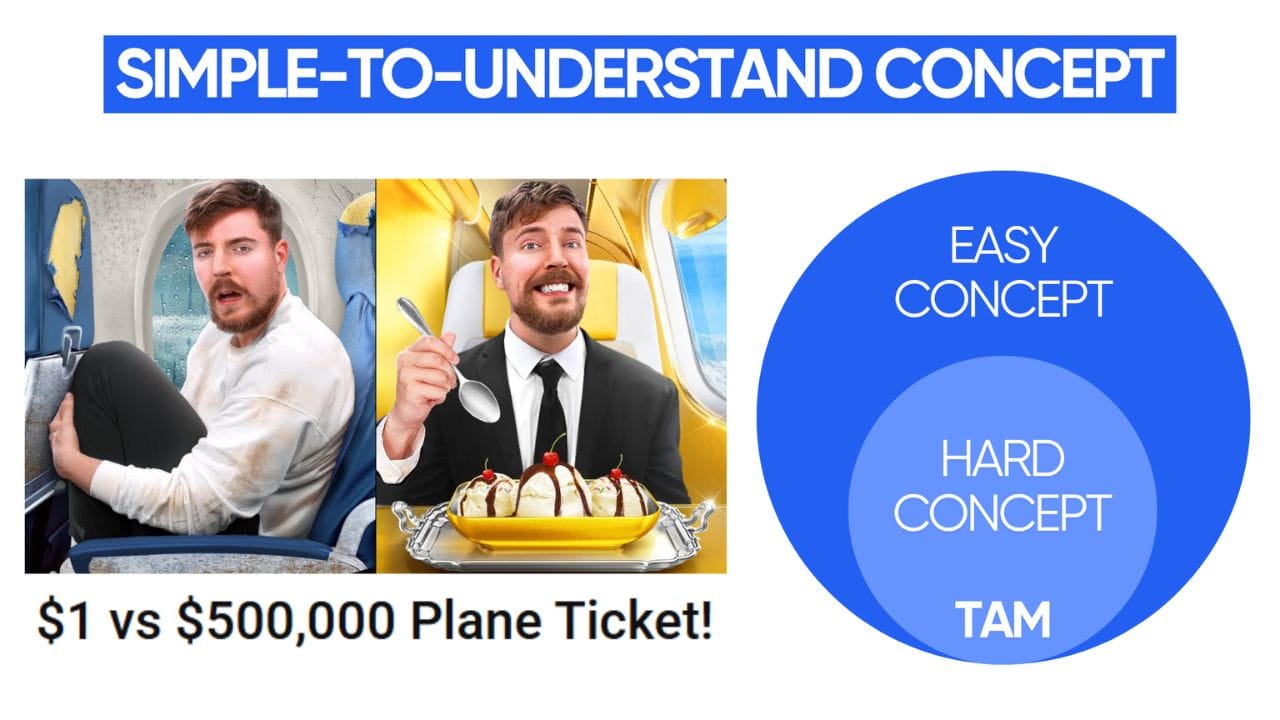
2. Extreme Contrast
What This Means
Placing an inexpensive item next to an extremely expensive counterpart creates a striking contrast that sparks curiosity. The larger the price gap, the more dramatic the comparison becomes.
This also plays a major role in the thumbnail - visual contrast grabs attention and makes the viewer think: “Is the expensive option really worth it?”
The interest stems from the potential surprise - sometimes the cheaper option might outperform expectations.
This format also aligns well with the current trend of value-conscious consumerism. Viewers are increasingly looking for ways to save money without sacrificing quality.
Highlighting the potential cost-effectiveness of cheaper alternatives lets you tap into this growing trend and attract a wider audience.
The “$1 vs $_____” format can be adapted to various niches, from tech reviews and beauty comparisons to food challenges and travel experiences. This versatility makes it a popular choice for content creators looking to engage their audience and drive views.
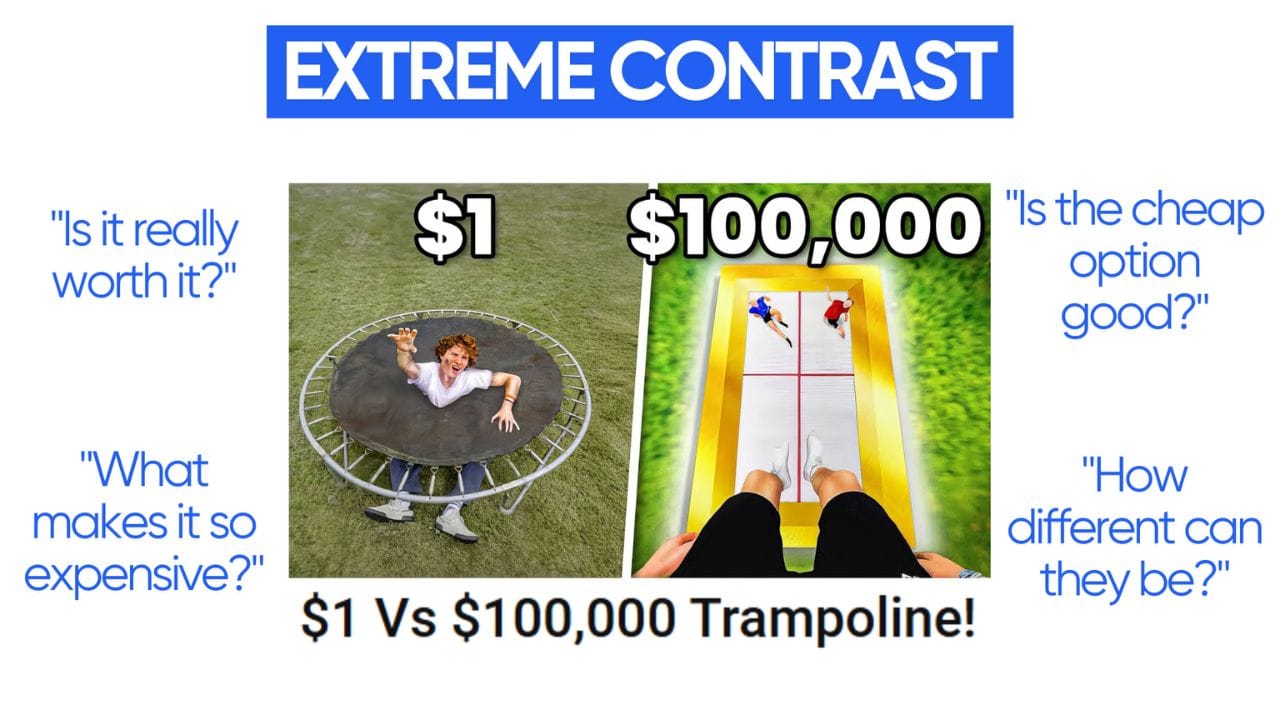
3. Evergreen Content
What This Means
One of the best aspects of this format is its evergreen nature. Regardless of trends, viewers are always curious about whether more expensive items deliver better results or value.
This ensures that the content will continue to be relevant and attract views over time, providing a steady stream of traffic.
By creating a library of “$1 vs $_____” videos, you can establish yourself as an authority in your niche and build a loyal following.
As your channel grows, you can leverage this format to introduce new products, compare different brands, and provide valuable insights to your audience.
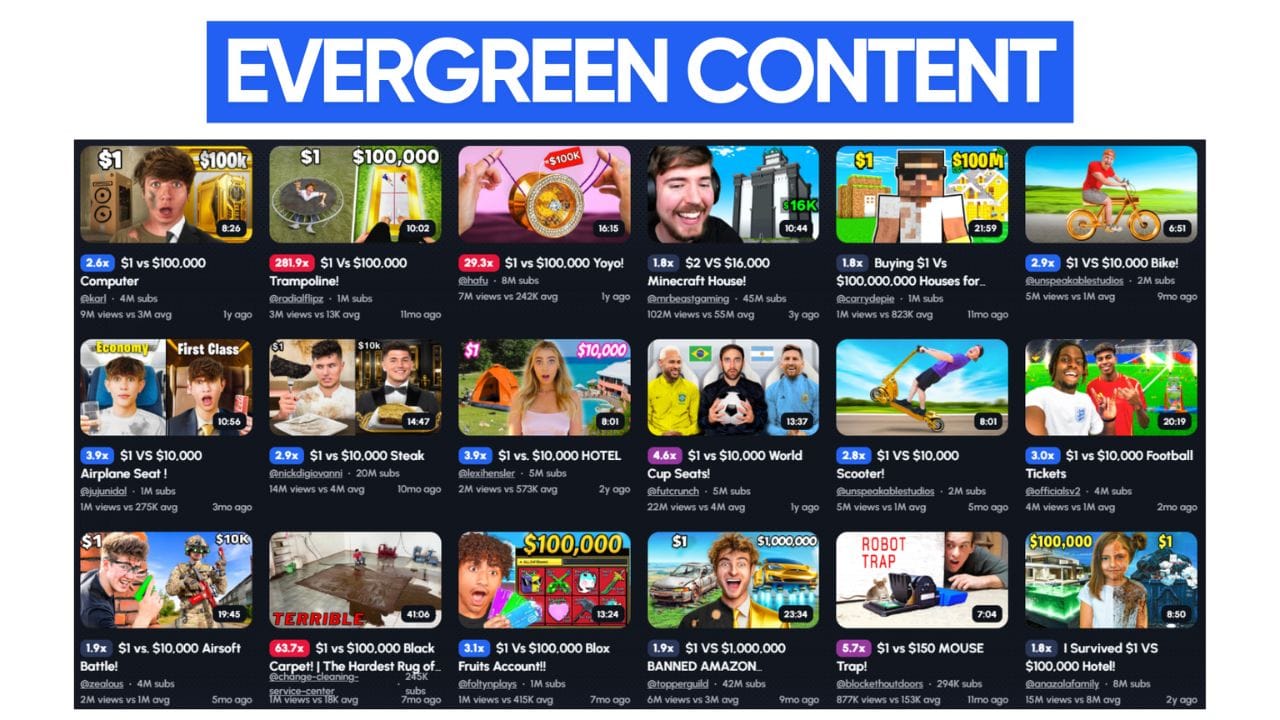
4. Easily Repurposed
What This Means
The flexibility of this format allows it to be applied across multiple niches. The “$[cheap] vs $[expensive] [subject]” title structure can fit almost any category (whether it's food, fashion, or technology).
Creators can adapt the format to suit their channel’s theme, making it highly repurposable across different niches and interests.
Below are outliers across 6 niches to show how creators have repurposed them to fit their content.
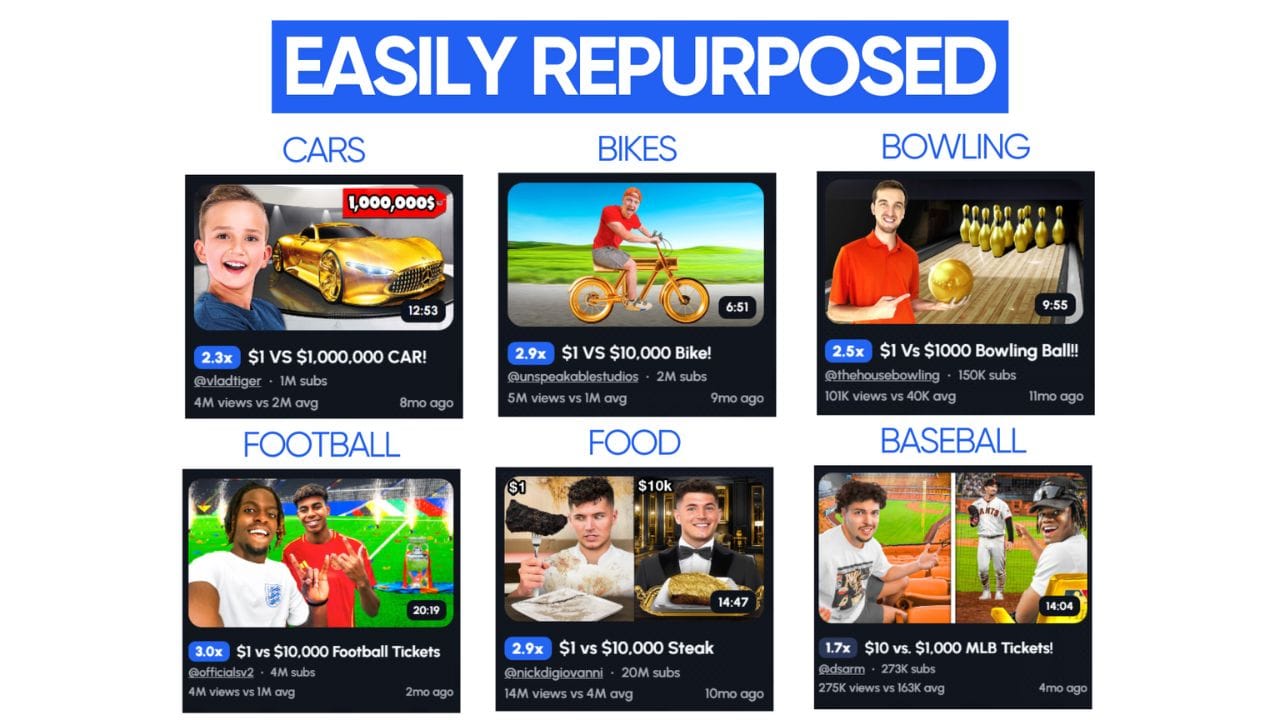
5. Progressive Build-Up / Escalating Title
What This Means
The "build-up" structure of this format is optimized for audience retention. Viewers can expect escalating moments as the video progresses, often leading to a big reveal at the end with the most expensive option.
This gradual escalation builds suspense and sparks curiosity, encouraging viewers to stick around for the payoff, which boosts viewer satisfaction.
This format also lends itself well to social media platforms, where short-form content is increasingly popular. By breaking down the comparison into bite-sized clips, creators can maximise engagement.

6. Switching Curiosities
What This Means
Another reason this format works so well is that it challenges the audience’s expectations.
For example, the viewer will know that cars are expensive, and that mac and cheese is cheap. So flipping their prices around sparks curiosity.
Viewers will think “What makes the mac and cheese so expensive?” or “Is a $1 car safe to drive?”, making them click to satisfy their curiosity.
Subverting expectations and creating a sense of mystery means this format can effectively capture viewers' attention and drive engagement.
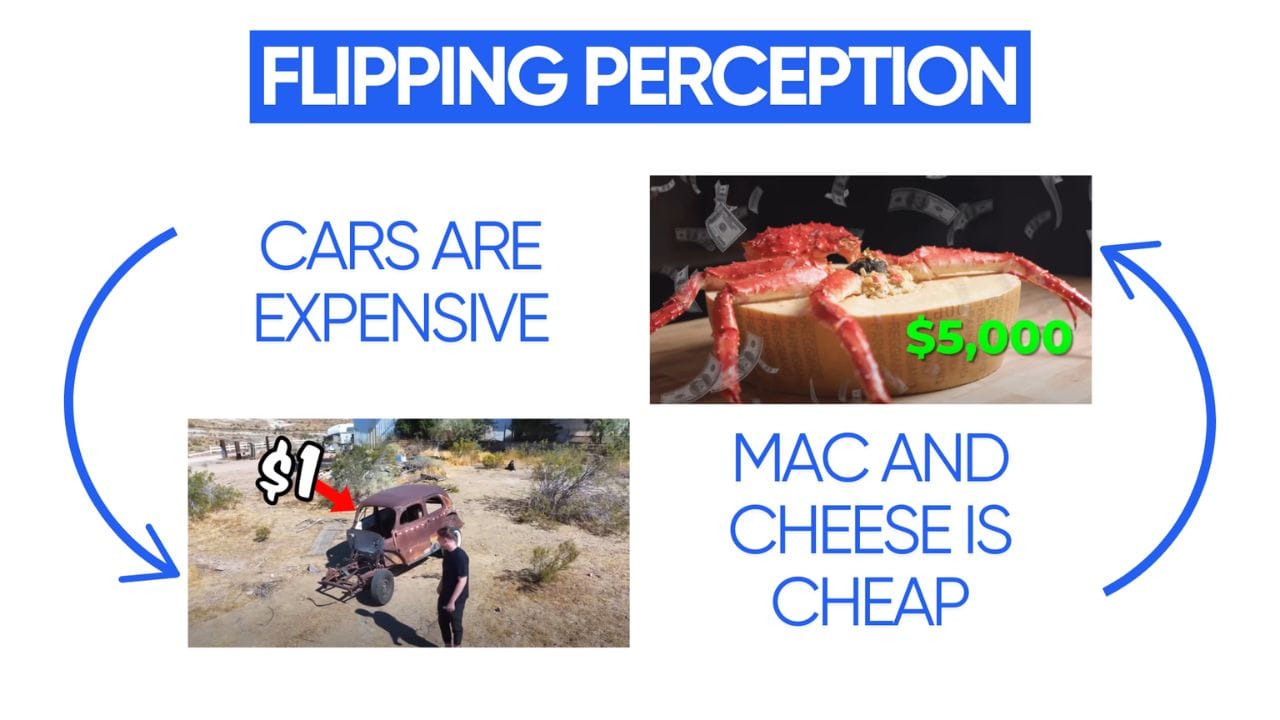
7. Data-Backed
What This Means
The "$1 VS $_____” concept has been a viral concept that's been shown to do consistently well, which means that it has been proven to draw viewer's attention to the video.
Data-driven decisions are essential for making informed choices. By relying on data, you can reduce biases and make more accurate decisions. When you analyze data, you can identify patterns and trends, which can help you make faster and more efficient decisions.
Below are 8 other examples using the 1of10 tool to find outlier videos that use this concept:
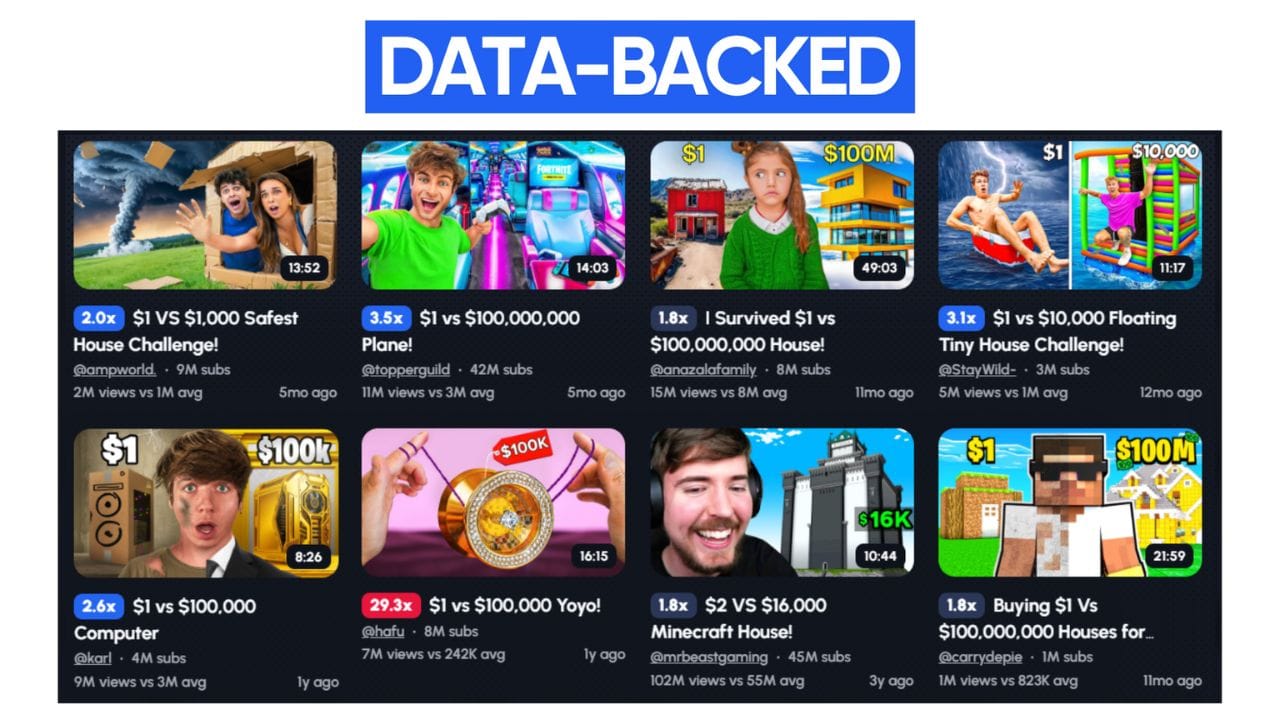
Understanding the key elements that make the "$1 vs $_____" format so effective means you can apply these principles to your own content and create engaging videos that attract a wide audience.
Remember, simplicity, contrast, evergreen appeal and a touch of surprise are key to taking advantage of this format. So, the next time you're brainstorming video ideas, consider incorporating this format to boost your YouTube channel's success.
